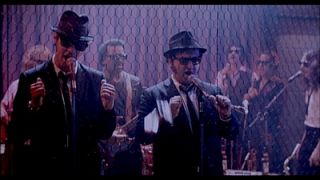
Cross-Cultural Psychology
What Leaders Can Learn From Country Western Music
It isn't always poetry, but it can teach us how to communicate our vision.
Posted June 10, 2013
Most cognitive scientists believe that narratives are the way humans frame their experience of the world. It makes sense, when you think about it. Stories have always been a central part of every culture around the world as long as there's been culture.
Our news is brought to us in the form of stories, we have story stocks, and when we want to know more about someone, we often ask, "What's your story?" Stories are the form much of our entertainment takes, whether it's a novel, a play, a movie, or a television show. Even as spectators of sporting events, we are treated to stories about the team's troubled season or perhaps a player's comeback.

Neuroscience gives us a tantalizing hint about one of the roles stories may play for us. There's a cognitive deficiency known as dysnarrativa, marked by both an inability to tell stories and the absence of empathy. Apparently, stories are not just how we know ourselves, but how we know others as well.
Philosopher Daniel Dennett of Tufts University believes that numerous stories exist in the mind simultaneously, and his “multiple drafts theory” postulates that the one we become conscious of is the one that best fits our mental and physical environment.
Most great leaders have also been great storytellers, providing a more attractive narrative than the one people were entertaining. Martin Luther King had his dream, and Winston Churchill told of “broad sunlit uplands” in the future, if the English did their duty during the war.
I have long advocated that leaders craft a story for their organizations. The “happily ever after” is their vision for the future, the “once upon a time” is the current state, and the middle of the story is how people will need to change to achieve the vision. The advantage of a story over a logical argument is that it addresses our emotions as well as our thoughts, and so is more moving.
But not all stories are created equal. Weak stories are like bad television cop shows—we may be entertained, but we're left the same afterwards, although perhaps with a little more fear. Strong stories are the ones that change us for the better. I think of movies like Schindler's List—tales of heroic deeds during terrible times that move us to aspire to our own kind of greatness.
To be effective, a leader's story should hold out the promise for people of becoming better in all the ways that matter: more altruistic, self-actualized, and happier in a profound way. But even a transformational story is only as good as the telling, and it's here that we might find inspiration from country western music.
Songwriters are poets constrained by time. To create the most powerful effect, they must gain maximum efficiency from the words they use to portray their characters and set their scenes.
When Taylor Swift sings, "He didn't like it when I wore high heels, but I do," she paints a vivid picture of moving from a dependent relationship with an overly judgmental boyfriend to a new found self-confidence.
When Johnny Cash and Bob Dylan sing, "If you're travellin' in the north country fair, where the winds hit heavy on the borderline, remember me to one who lives there, for she was once a true love of mine," a whole story of a love regrettably lost unfolds in just a few lines.
But when Billy Ray Cyrus sings, "You can tell my arms go back to the farm, you can tell my feet to hit the floor, or you can tell my lips to tell my fingertips they won't be reaching out for you no more, but don't tell my heart my achy breaky heart," all we get is an image of dismembered body parts wandering about lost.
Now I don't want to alienate any of Billy Ray's fans, but I suspect he didn't have a clear picture in mind of the scene he was trying to create. At least, I hope he didn't.
Leaders need to really envision the aspirational future they are striving to create and then pick a small handful of concrete details that will make it real for people. Perhaps it's the celebratory toast when that big deal comes in, or the smile on a customer's face when she is completely satisfied.
Without the well-chosen details that bring it to life, a leader's story leaves us not with the promise of the future, but with the disappointment of an achy breaky heart.



